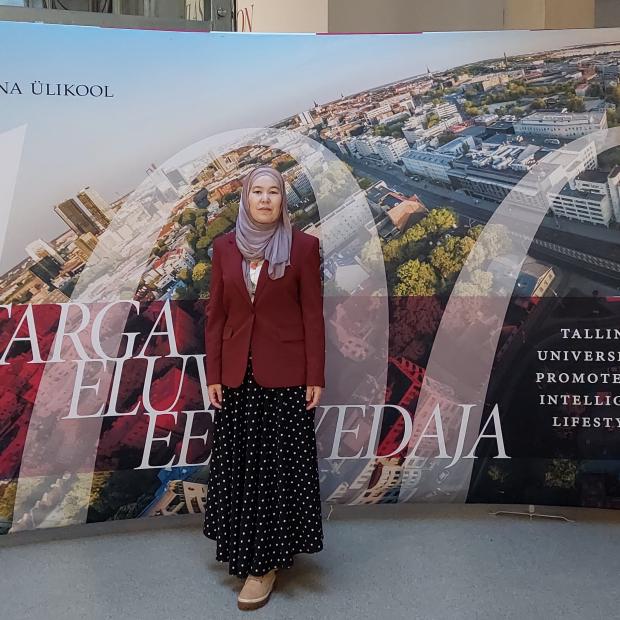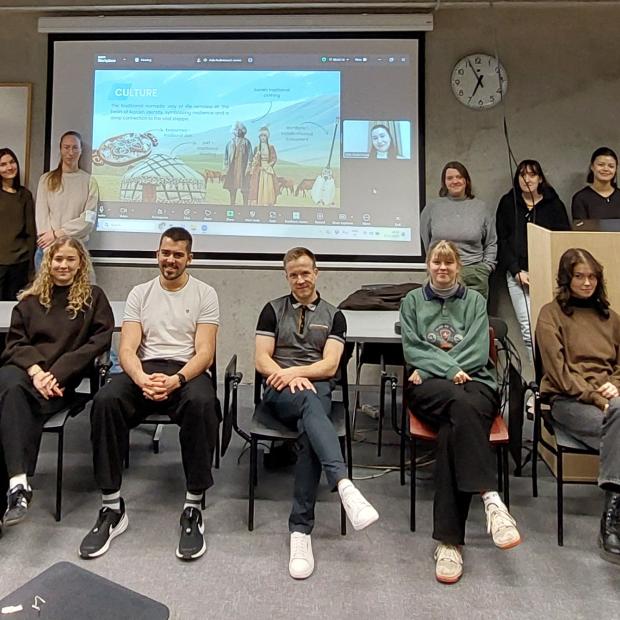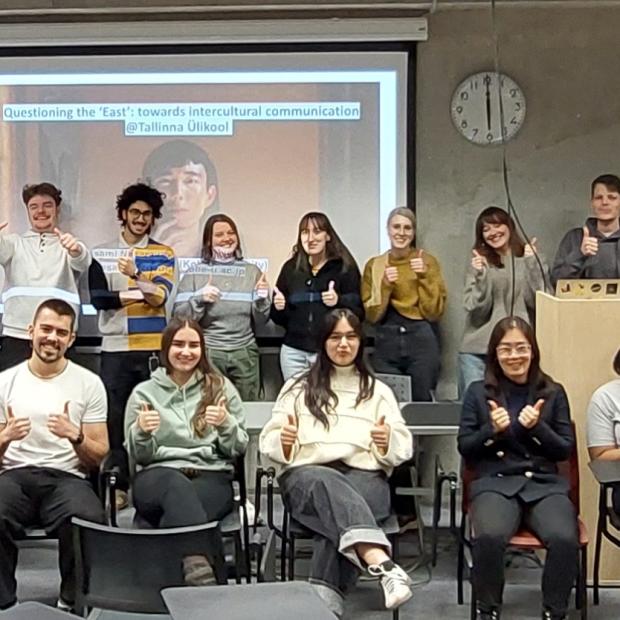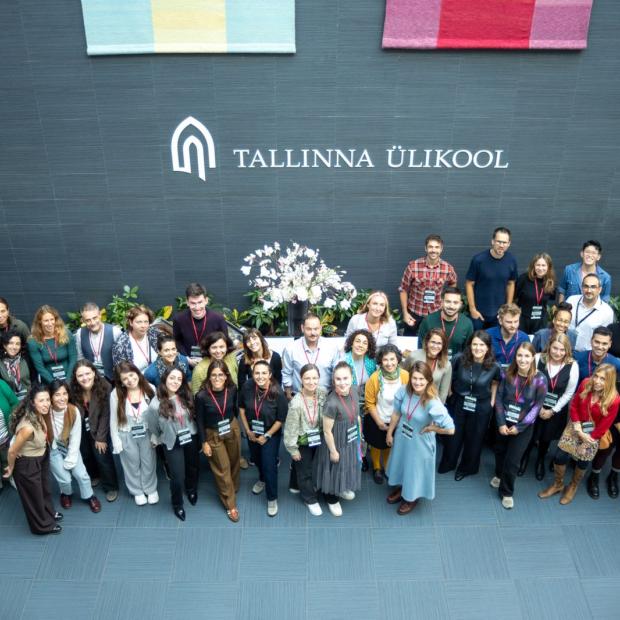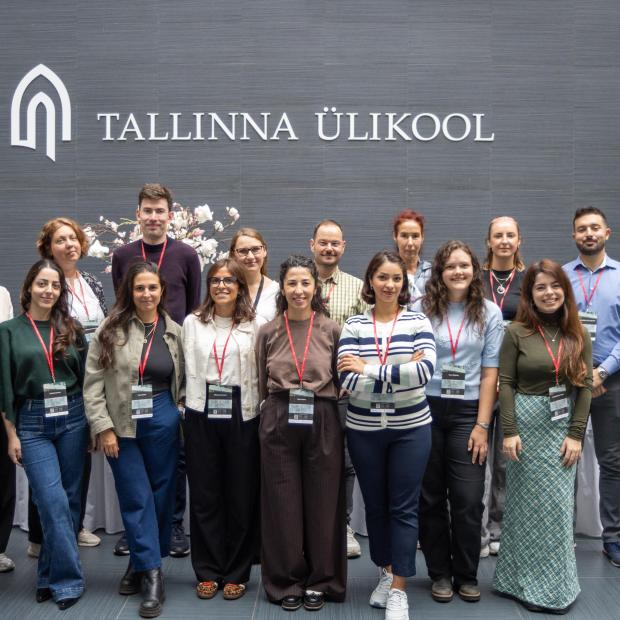Excellence in Communication Management: A Cum Laude Journey by Kristiina Raud
As a graduate of the Communication Management MA program, Kristiina Raud now stands as a Junior Research Fellow at BFM.
Specialty and year of graduation. What sparked your interest in Communication Management?
I studied in the Communication Management program in 2020-2022, so right in the middle of the COVID-19 pandemic, which kind of helped to focus on the studies since I couldn’t do much else. I was also working at the time as the head of communication at a human rights non-profit. That’s why I initially came to university - to be better at my job. This program offered me a useful combination of theoretical knowledge and practical skills, from understanding the interconnections of media and society to creating a communication strategy.
What is your current role, and what does it entail? (How did you decide to pursue doctoral studies? Were you inspired to engage in research by the process of writing your thesis and participating in master seminars?)
Although I started my master’s to be better at my job, I realised during the studies that what I wanted to do the most was research. Now I am a junior research fellow at BFM and I am researching the connections between media and democracy. More specifically, I am interested in how mediated contact between different social groups affects people’s civic participation. This topic was actually already present in my master’s thesis in which I was able to combine my academic interests with the practical needs of my then-job. In fact, it was important for me throughout my MA studies to notice the connections to real life in each course, to think along, discuss, and find ways to contribute to what was being taught. For instance, when discussing organisational communication, I was able to add the non-profit perspective to the dominant business experiences of others.
However, the work of a junior research fellow consists of more than studying your favourite topics as you can also grow in other aspects. For example, I am currently supervising a BA student in their thesis writing, I am part of the Communication Management MA program admission committee, and I get to take part in the appointment of new academic staff at BFM. Therefore, even though I am continuing to study, I am now actually an employee, not a student, and my experience of university life is quite different.
Tell us about a project that currently tops your to-do list.
As I said, in general terms, I am exploring the connections between media and democracy. My doctoral dissertation will consist of three studies, two of which will focus on the relations between mediated contact and civic participation, while one is part of the larger international project Mapping Media for Future Democracies or MeDeMap. The project is broad and ambitious and as part of it, the task of my colleagues and I is to study the connections between people’s media use choices and their attitudes towards democracy. I am very happy that I get to work with top experts in their field from several European countries, including my own PhD supervisors Dr Alessandro Nanì from BFM and Prof Nico Carpentier from Charles University in Prague.
Which professional achievement or initiative are you most proud of?
I am generally proud of myself for making it this far and finding the type of work which is always exciting and where I feel good. More specifically, however, I am quite proud of my master’s thesis because all the work that I put into it was recognised when I won the special prize from the Ministry of Social Affairs at the national student research contest and second place in my category at the Tallinn University student research contest. It is nice to look at these recognitions in my office when my brain gets overwhelmed working on my PhD dissertation and to remember that everything will be great in the end.
What is something about you that would surprise people to know?
Since it surprised myself, it may surprise others to know that I am a member of the Estonian Defense League. It took some time for me to rewrite my story of me as a ‘soft’ intellectual who only fights with words and to discover that by taking on a complicated and even internally conflictual (but eventually resolvable) responsibility makes me a smarter and stronger citizen, which is so closely related to the well-being of democracy, which is what I am studying in my work.
A knowledge/lesson that I picked up at BFM and keep in mind on a daily basis (could be at work or in my personal life):
I have learned the value of actively thinking along and engaging in discussions. As a BA student, I was quiet and completely lacked the skill of expressing my opinion. By the time I started my master’s, I was already an accomplished professional and felt that I can gain a lot more from my studies if the process is dynamic and I let myself be drawn into it. At about the same time I came to know the wisdom of learning psychology (greetings to Grete Arro at the TLU School of Educational Sciences!) which says that real learning is when we dare to be wrong, actually get things wrong, and eventually construct, in our own words, our new knowledge. That is really useful in any area of life!
One piece of advice for future and current BFM Communication Management MA students: Enjoy the process: thinking, speaking, being wrong, getting lost, discovering, making an effort, and reaching achievements!
